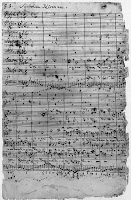I think about failure and success, having such a spectacular track record of failing to find a library job. I console myself with the character-building qualities of failure, and with the opportunity to develop spiritual robustness with all the time I save not having a demanding job. I regret my inability to provide more security and more fun for my children, and I don't have a silver lining for that.
I am attracted to stories of failure, its antecedents and consequences. Last night after a heavy day of resisting that insistent voice in my head chanting "loser, loser, loser," I reached for Bill Holm's The Music of Failure. He grew up in a small rural town and calls those a success who pass on a love of learning and beauty, particularly his friend Pauline Bardal and her brother and sister.
I'm an adult living in a wonderful city that values learning and beauty. Though I may occasionally inspire such a love, so do multitudes of other influences.
Here in the city, in my adult life, I count myself as a success those times I am kind, the times I am optimistic, the times I listen from the heart. These are qualities I possess that may be in short supply around me, and which could kindle another's heart the way the Bardal's love of learning kindled Bill Holm.
Is it spiritual discipline or cop-out to believe wholeheartedly that is enough? I work to believe that intangibles such as love can be my success, but keep a cynical eye out for self-delusion.
Here, for your reading pleasure, is an excerpt from The Music of Failure:
"Pauline, in American terms, was a great failure: always poor, never married, living in a shabby small house when not installed in others' backrooms, worked as a domestic servant, formally uneducated. . . gawky and not physically beautiful, a badly trained musician whose performances would have caused laughter in the cities. She owned nothing valuable, traveled little, and died alone, the last of her family. . . Probably she died a virgin, the second most terrible fate, after dying broke, that can befall an American.
Pauline shared a small house with her brother Gunnar and her sister Rose, and when she died, the last of the Bardals, there was no one to inherit it. Holm helped clear the "pack rat" house for the executors.
"They accumulated no cans full of bank notes, no hidden treasure, nothing of any genuine monetary value; the Bardals were, in that regard truly poor. But not poor in mind and spirit! They owned books in three or four languages: Plato, Homer, Bjornsson in Norwegian, Snorri Sturlasson in Icelandic, Whitman, Darwin, Dickens, Ingersoll, Elbert Hubbard, piles of scores by Handel, Bach, Mozart, George Beverly Shea and Bjorgvin Gudmundsson, old cylinders of Caruso, Galla-Curci, Schumann-Heink, John McCormack, cheap books reproducing paintings and sculpture from great European museums, organ, piano, violin, trumpet, manuals for gardening, cooking and home remedies, the best magazines of political commentary and art criticism next to Capper's Farmer, the Minneota Mascot, and The Plain Truth, dictionaries and grammars in three or four languages, books of scientific marvels, Richard Burtons's travel adventures, old text books for speech and mathematics, Bibles and hymn books in every Scandinavian language, Faust, The Reader's Digest, and "Sweet Hour of Prayer." That tiny house was a space ship stocked to leave the planet after collecting the best we have done for each other for the last 4,000 years of human consciousness. And none of it worth ten cents in the real world of free enterprise! The executors might as well have torched the house, thus saving the labors of sorting it, giving mementos to friends and peddling the rest at a garage sale on a sweltering summer afternoon. What one realized with genuine astonishment was that the Bardals piled this extraordinary junk not only inside their cramped house; that house was a metaphor for their interior life which they stocked with the greatest beauty and intelligence they understood. They read the books, played the instruments, carried the contents of that house in their heads, and took it off with them at last into their neat row in the Lincoln County graveyard."
"But not entirely . . . Anyone who carries a whole civilization around inside gives it to everyone they meet in conversations and public acts. Pauline gave me music; Gunner, the model of a man who read and thought . . . Rose, in her odd way, her crazed longing for God. Not one of them had so much as a high school diploma. "


